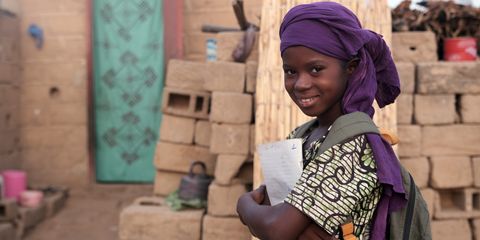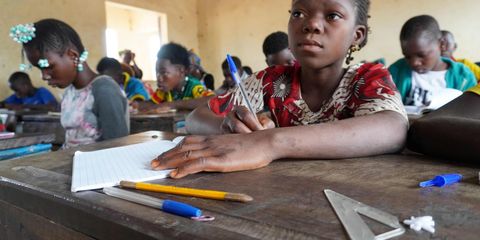In crisis-affected Mali, thousands of children like Moussou and Assiatou are eating nutritious meals at school every day, boosting attendance, productivity and results.
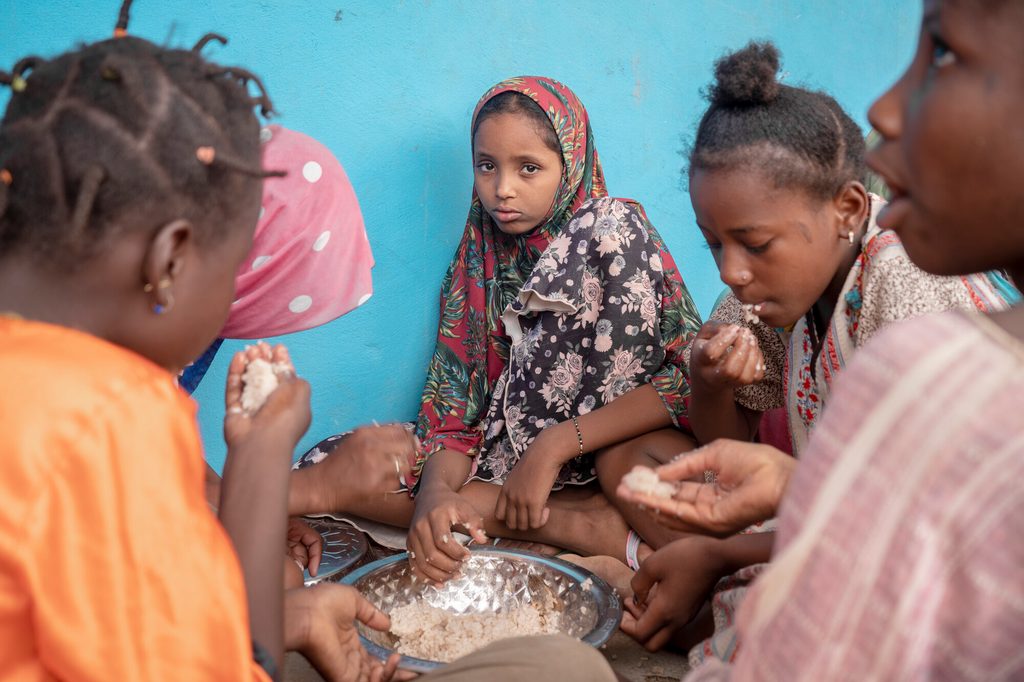
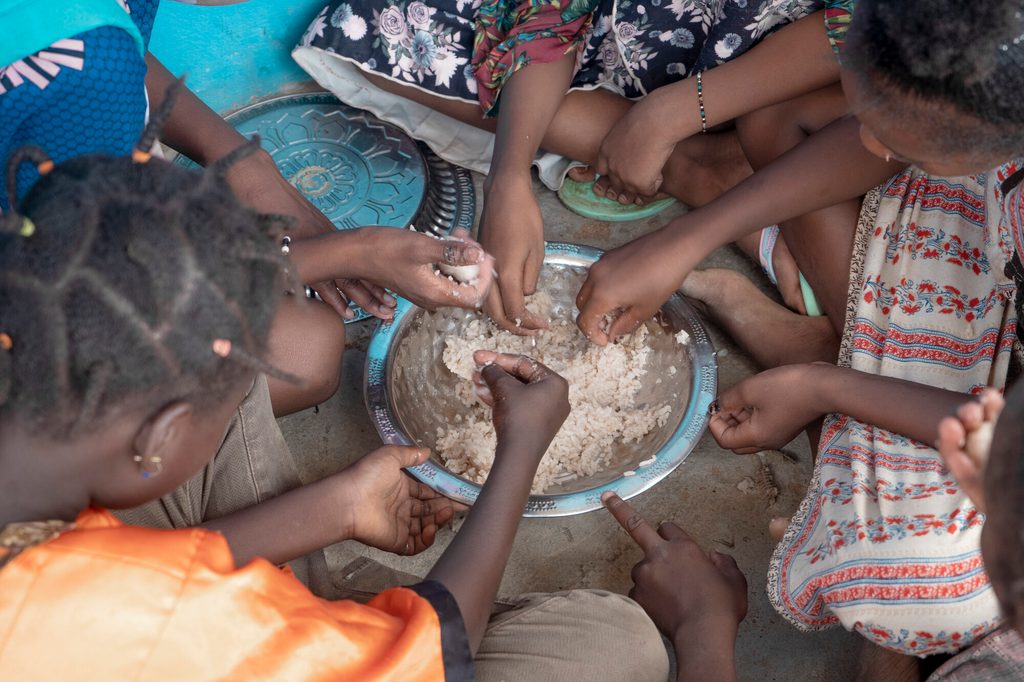
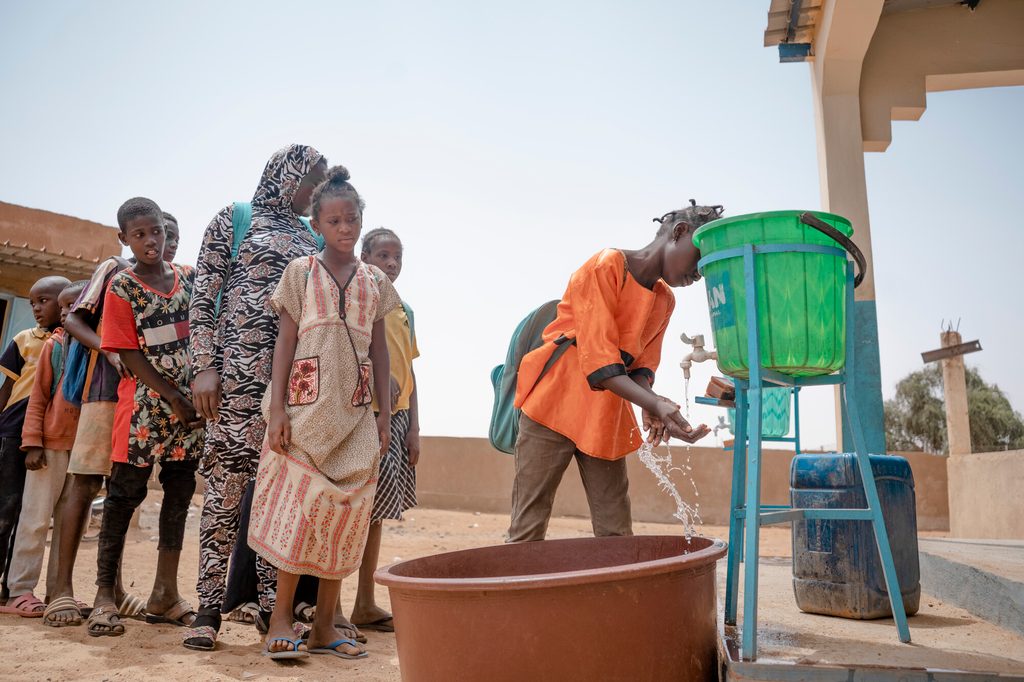
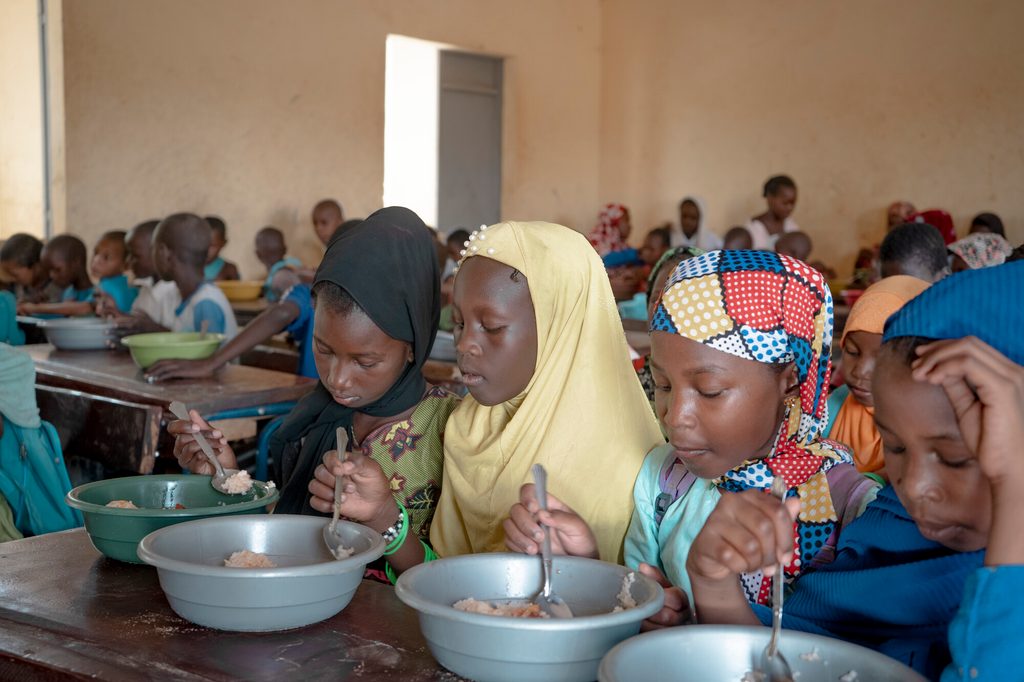
Hunger has a marked impact on children’s education, affecting their concentration and ability to learn. In a crisis context, school feeding interventions help to keep children in school, giving them good learning conditions while improving their nutritional status. Moreover, school attendance protects children against various types of rights violations, especially girls who are more exposed to gender-based violence in times of crisis.
Learning on a full stomach
“The canteen plays an essential role in our school. I am convinced that the canteen has a significant impact on parents and the population in general. Since we founded the canteen, the children come regularly and we have even noticed an increase in numbers. In the past, we had 642 students, today we have 656. All students who were irregular resumed classes as normal. The canteen therefore has an impact on student attendance, productivity and school results,” explains school director Idrissa Mohomodou.
“Before, my father gave me money, and when he didn’t have any, I couldn’t eat. Now I like going to school because there is food.”
9-year-old Assiatou
Children are now looking forward to going to school. “The food is really delicious,” says 12-year-old Aminata. “Before the school canteen started, I went home to eat. Since the canteen opened, my parents have had peace of mind, because the people who prepare the meals are clean and the food is tasty. The canteen is great, I really like it.”
Moussou, 10, is in the fifth year of school and tells us that both she and her mother were delighted when the canteen opened. “I was always hungry at school, but I now come home with a full stomach. It’s hard to learn when you’re hungry. Studying on an empty stomach is not easy, but when we eat, the lessons become easier to understand. Before, I didn’t understand anything because I was constantly hungry, but now I understand very well.”
Nine-year-old Assiatou now likes going to school. “It is good quality food, especially for the children, and we all get enough. Before, my father gave me money for food, and when he didn’t have any, I couldn’t eat. Now I like going to school because there is food there. My parents are happy to know that we have something to eat at school.”
Assiatou’s father Mohamed says the school canteen has come just at the right time, and encourages all the children in the community to go to school. “Education is paramount, especially in the conditions of poverty and war that people face. Households are affected by poverty and difficult living conditions, which often discourage them from sending their children to school. Families here struggle to provide 2 meals a day. The canteen has really helped us and had a positive impact on the children, including my daughter who studies there because I now know that my child has something to eat at school.”
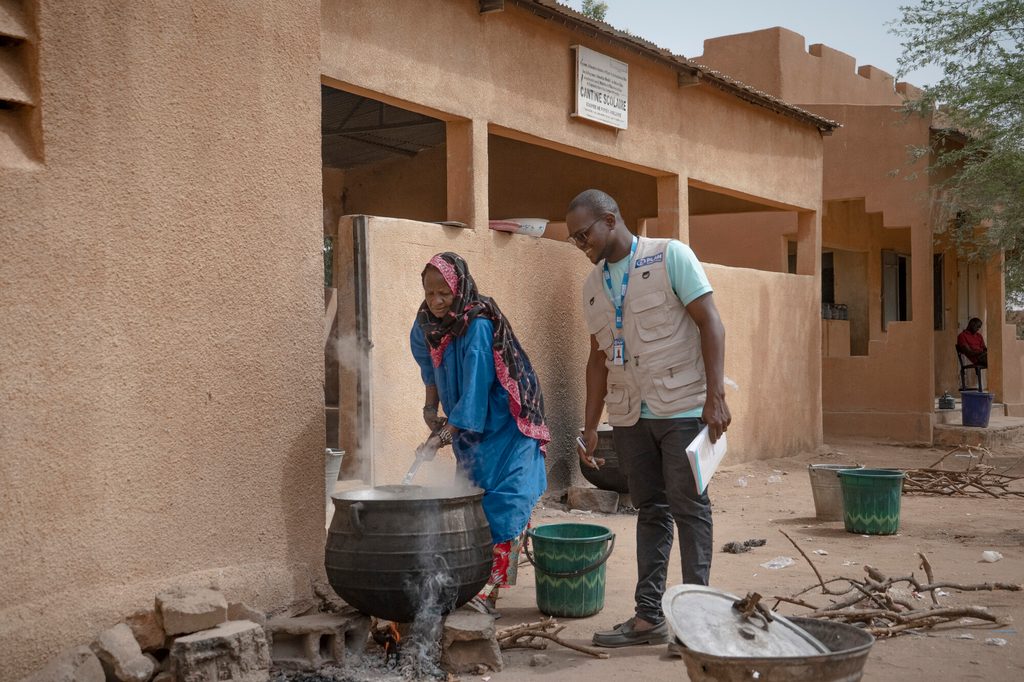
Plan International is supporting schools in Gao and Mopti regions with the aim of increasing children’s attendance at school and ensuring that children’s nutritional needs are being met in areas which are currently experiencing acute food insecurity.
Sidi Barka Baby, Plan International staff in Gao explains that the overall goal is to increase the number of children at school. “Due to insecurity, 22% of schools in Mali have been closed. In Gao region, the project initially aimed to support 2,310 students, but currently we are supporting 4,005 students and we are seeing an increase in student attendance. In order to sustain the initiative of school canteens, measures have been put in place, such as the construction of chicken coops and vegetable gardens. These facilities will provide resources to supply the canteens.”
About the project
In Mali, 1.3 million people were affected by food insecurity as of October 2023 according to OCHA.
As part as our response to the hunger crisis in Mali, Plan International has been working in Gao and Mopti regions to provide nutritious school meals to 6,624 students every day in total from October 2022 to September 2023. The project has supported 5 schools in Gao region and 6 in Mopti region by providing hot meals, infrastructure and kitchen equipment. Two school gardens in Mopti region and 2 in Gao region have also been set up by the organisation, and the schools in Gao region benefitted from chicken coops. Students and teachers in both regions were trained in hygiene and sanitation.
To ensure the sustainability of the project’s results, Plan International has worked closely with education stakeholders, including parents’ associations and school management committees.

